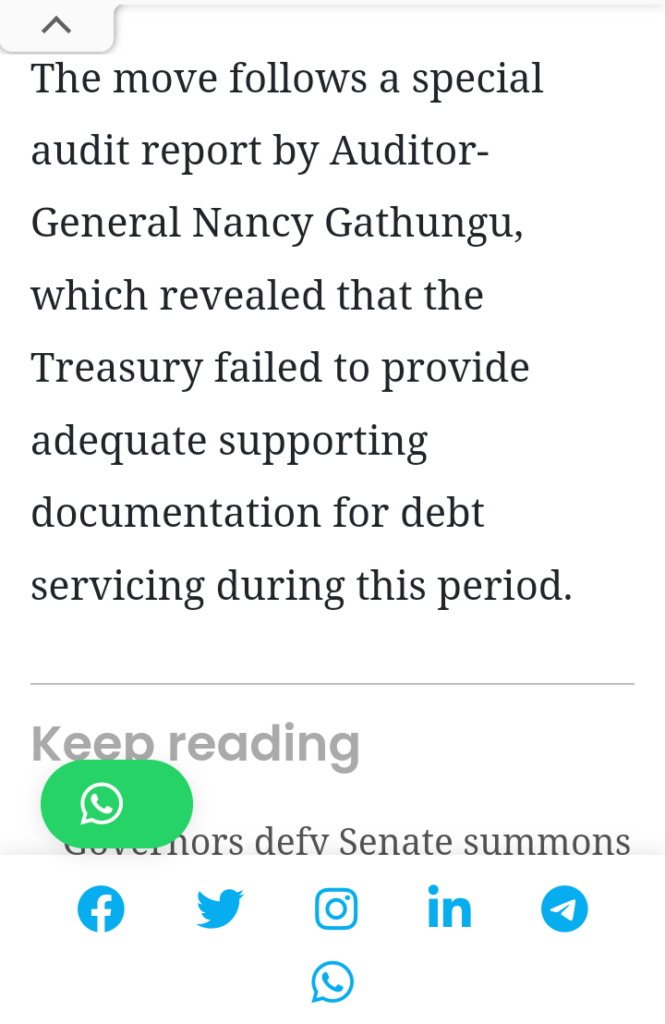Senators are questioning the National Treasury over Sh161 billion in debt repayments spanning the financial years 2021, 2022, and 2023.They are demanding a detailed explanation for the payments, which remain unaccounted for.
This follows a special audit report by Auditor-General Nancy Gathungu, revealing that the Treasury did not provide adequate documentation for debt servicing during this period.
The Senate Finance and Budget Committee, led by Mandera Senator Ali Roba, is now investigating the matter.
Their task includes understanding why the supporting documents are missing and analyzing Kenya’s overall public debt.
The inquiry is not limited to the Sh161 billion but also seeks to examine borrowing trends over the past decade.
The committee aims to differentiate between domestic and external debt, outline repayment timelines, and assess measures to reduce the risk of default.

Kisii Senator Richard Onyonka raised concerns about possible corruption and misuse of public funds.
He stated that the inquiry should assess the government’s borrowing practices, the sustainability of Kenya’s debt, and the accountability gaps in financial management systems.
Senator Onyonka also called for legal and policy reforms to improve transparency in borrowing and repayment processes, emphasizing that public trust and fiscal sustainability must be restored.
This push for accountability extends beyond the Senate.
High Court Judge Lawrence Mugambi recently ruled that the government must disclose, within 45 days, how funds raised through sovereign bonds over the past nine years have been used.
This decision came after the Kenya Human Rights Commission (KHRC) and activist Wanjiru Gikonyo filed a case against the Treasury for withholding information about sovereign bond agreements.
The court rejected the Treasury’s claim that this information is already available in budget policy statements, clarifying that these documents only outline borrowing plans but do not detail actual expenditures.
The KHRC stressed the public’s right to know how the government manages financial resources so they can make informed decisions.
The Treasury has also revealed plans to re-enter international capital markets with a new Eurobond in 2026.
Currently, Kenya’s outstanding Eurobond debt stands at Sh854.8 billion, with repayments stretching to 2048.
The next major repayment, amounting to Sh116.3 billion, is due in May 2027.
Meanwhile, senators have expressed concern over the government’s intention to borrow an additional Sh413 billion for the 2024 and 2025 financial years.
They question the sustainability of this borrowing, especially given the unresolved accountability issues.
Senator Onyonka emphasized the urgency of addressing Kenya’s debt situation.
He called for the committee to thoroughly examine borrowing practices and ensure robust measures are in place to prevent the misuse and wastage of public funds.


